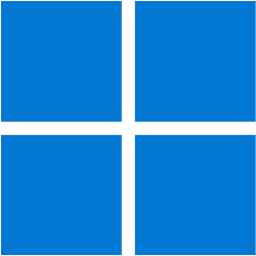S1:新建一个空的C++DLL项目,nsMessageBoxPlugin.
S2:复制“C:\Program Files (x86)\NSIS\Unicode\Examples\Plugin\nsis”文件夹到
当前solution下。
S3:当前project头文件和库文件搜索路径设为“$(SolutionDir)nsis;”
S4:把nsis中的头文件加到当前project中。
S5:为当前project添加nsMessageBoxPlugin.c文件。源文件清单如下。
#include <windows.h>
#include <pluginapi.h> // nsis plugin
HWND g_hwndParent;
// To work with Unicode version of NSIS, please use TCHAR-type
// functions for accessing the variables and the stack.
void __declspec(dllexport) myFunction(HWND hwndParent, int string_size,
TCHAR *variables, stack_t **stacktop,
extra_parameters *extra)
{
g_hwndParent = hwndParent;
EXDLL_INIT();
//读取输入参数
WCHAR szComponent[256];
popstring(szComponent);
//打印参数
WCHAR buf[1024];
//这里能正确打印出来自NSIS的中文信息。
wsprintf(buf, L"kagula $0=[%s][中文测试]\n", szComponent);
MessageBoxW(g_hwndParent, buf, 0, MB_OK);
//准备返回参考
int len = (int)wcslen(szComponent);
// make a little change to input parameter
// below shift a unit character.
for (int i = 0; i < len; ++i)
szComponent[i] += 1;
// push back on the stack
pushstring(szComponent);
}
/*
nsMessageBoxPlugin::myFunction "abcdefg[来自NSIS的中文测试]"
Pop $0
MessageBox MB_OK "ret = $0"
#打印来自C++的中文会乱码。
*/S6:把project生成的“nsMessageBoxPlugin.dll”复制到“C:\Program Files (x86)\NSIS\Unicode\Plugins”路径下。
S7:现在运行NSIS脚本应该能看到效果了。
S8:自动复制动态链接库免得每次编译都要手动复制一遍(要求关闭操作系统的UAC)。
把下面三行代码复制到“[Configuration Properties]->[BuildEvents]->[Post Build Event]”
echo on
copy “$(OutDir)$(TargetName)$(TargetExt)” “C:\Program Files (x86)\NSIS\Unicode\Plugins”
echo offQ 桌面快捷方式,示例
在section “install”中添加下面的代码,新建shortcut
CreateShortcut “$DESKTOP\${APPNAME}.lnk” “$INSTDIR\${APPEXENAME}”在section “uninstall”中添加下面的代码,删除shortcut
delete “$DESKTOP\${APPNAME}.lnk”Q 关闭正在运行的程序,示例
有两种方法,最常用的是下面这种方法
Function CloseProgram
StrCpy $1 0
loop:
FindWindow $0 "${WinClassName}" ${MainExeWindowText}
IntCmp $0 0 done
; SendMessage $0 ${WM_DESTROY} 0 0
; SendMessage $0 ${WM_CLOSE} 0 0
SendMessage $0 ${WM_QUIT} 0 0
Sleep 100
IntOp $1 $1 + 1
IntCmp $1 3 done
Goto loop
done:
${nsProcess::FindProcess} ${APPEXENAME} $R0
${If} $R0 == "0"
# it's running
MessageBox MB_OK "你的程序无法自动关闭,请先关闭${APPNAME}程序,再启动安装卸载程序!"
Quit
${EndIf}
FunctionEndQ 判断己安装程序版本,示例
我使用的方法是:
利用NSIS官网中的VersionCompare函数,比较EXE中的版本。
Function VerCheck
pop $0
${GetFileVersion} "$0" $VersionNumber
FunctionEnd
ReadRegStr $0 HKLM "Software\Microsoft\Windows\CurrentVersion\Uninstall\${COMPANYNAME} ${APPNAME}" "MainProgramLocation"
${If} $0 != ""
${If} ${FileExists} $0
push $0
Call VerCheck
${VersionCompare} $VersionNumber ${VERSIONLONG} $R0
${if} $R0 == "1"
${Endif}
${if} $R0 == "0"
${Endif}
${if} $R0 == "2"
${Endif}
${EndIf}
${EndIf}Q 设置升级安装路径为上次的安装路径
从注册表中读取上次的安装路径
ReadRegStr $0 HKLM “Software\Microsoft\Windows\CurrentVersion\Uninstall\${COMPANYNAME} ${APPNAME}” “MainProgramLocationPath”在安装section中把安装路径写进去
WriteRegStr HKLM “Software\Microsoft\Windows\CurrentVersion\Uninstall\${COMPANYNAME} ${APPNAME}” “MainProgramLocationPath” “$INSTDIR”Q 如何使用变量,示例
声明
Var IsSkipCustom初始化
Strcpy $IsSkipCustom 0修改值
Strcpy $IsSkipCustom 1判断
IntCmp $IsSkipCustom 1 skipCustom
;这里若干行代码
skipCustom:
;不等于1就跳到这里来了。Q 如何保留用户原来的数据
#reserve config file.
CreateDirectory "C:\Temp20150606151700\config"
CopyFiles "$INSTDIR\config\catconfig_w.ini" "C:\Temp20150606151700\config"
# Try to remove the install directory - this will only happen if it is empty
rmDir /r $INSTDIR
#reserve config file.
CreateDirectory $INSTDIR
CreateDirectory "$INSTDIR\config"
CopyFiles "C:\Temp20150606151700\config\catconfig_w.ini" "$INSTDIR\config"
rmDir /r "C:\Temp20150606151700"Q 如何注册控件
RegDLL "$INSTDIR\XXX.ocx"
UnRegDLL "$INSTDIR\XXX.ocx"Q 如何安装MSXML
# Install MXSML4
IfFileExists "$SYSDIR\msxml4.dll" file_found file_not_found
file_found:
goto continue
file_not_found:
SetOutPath $SYSDIR
SetOverwrite off
File msxml4.dll
;File msxml4a.dll
File msxml4r.dll
RegDLL $SYSDIR\msxml4.dll
continue:或采用下面的代码,quiet方式运行xml4的msi安装包。
File msxmlchs.msi
ExecWait "msiexec /quiet /i msxmlchs.msi"如何判断已经装过的msi软件,guid可以从老的msi里去拿
ReadRegStr $0 HKLM "Software\Microsoft\Windows\CurrentVersion\Uninstall\{36B84F1C-C2C0-4B62-8643-98B3F4DAC8BB}" "DisplayName"
${If} $0 != ""
; MessageBox MB_OK "你已经安装${APPNAME}v1.2.0软件,这个版本太旧需要你手动卸载才能安装${VERSIONLONG}版本软件,按确定退出安装!"
push "已安装老版本的客户端,点击确定升级到最新版。"
Call MyMessageBox1
ExecWait "msiexec /x {36B84F1C-C2C0-4B62-8643-98B3F4DAC8BB} /passive" $0
${EndIf}StrCpy如何当中加个空格?
如何调用静默卸载?
#自动卸载上一个打包版本.begin
ReadRegStr $0 HKLM "Software\Microsoft\Windows\CurrentVersion\Uninstall\${COMPANYNAME} ${APPNAME}" "MainProgramLocationPath"
${If} $0 != ""
Strcpy $1 $0\uninstall.exe
#下面的Call MyMessageBox1会修改$0全局变量,所以$0要先保存到$1中。
push "检查到老版本的安装程序,按确定自动卸载"
Call MyMessageBox1
#为uninstall.exe加一个/S参数是为了静默卸载。
Strcpy $1 '$1 /S'
ExecWait $1
${EndIf}
#自动卸载上一个打包版本.end如何防止启动多个安装实例
在Function .onInit中使用一面代码段
System::Call 'kernel32::CreateMutexA(i 0, i 0, t "Cat8637All") i .r1 ?e'
Pop $R0
StrCmp $R0 0 +4
push "安装程序已经启动!"
Call MyMessageBox1
Abort







暂无评论内容